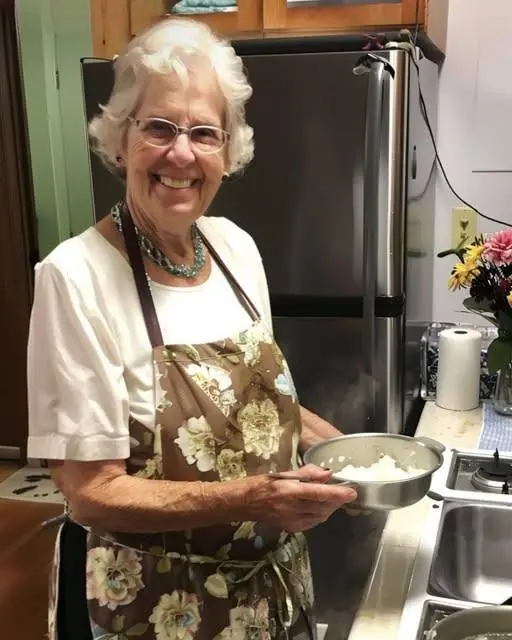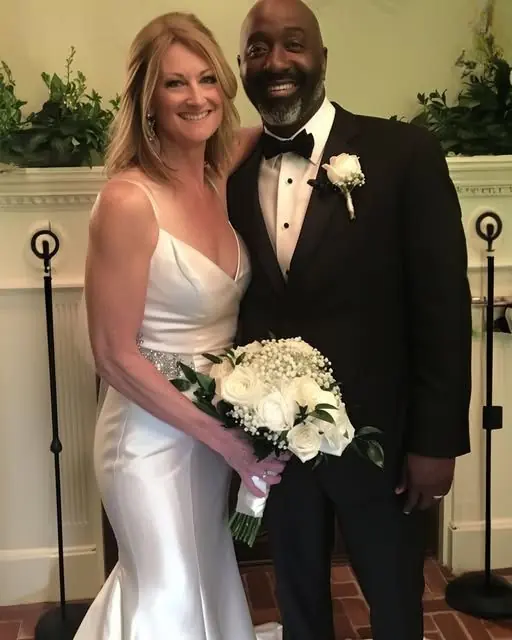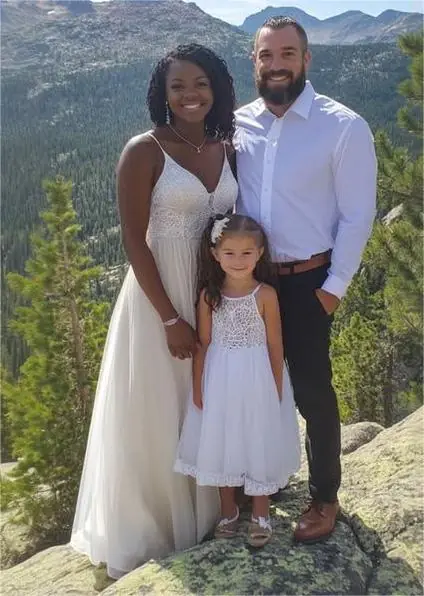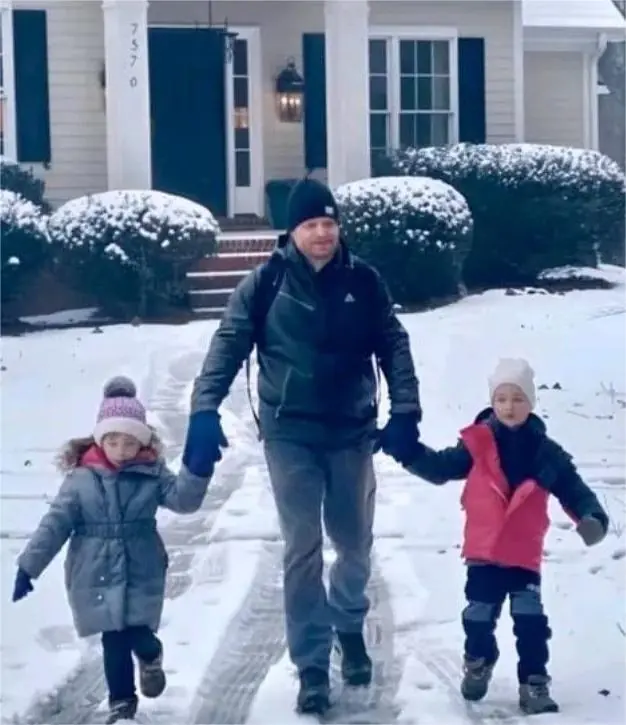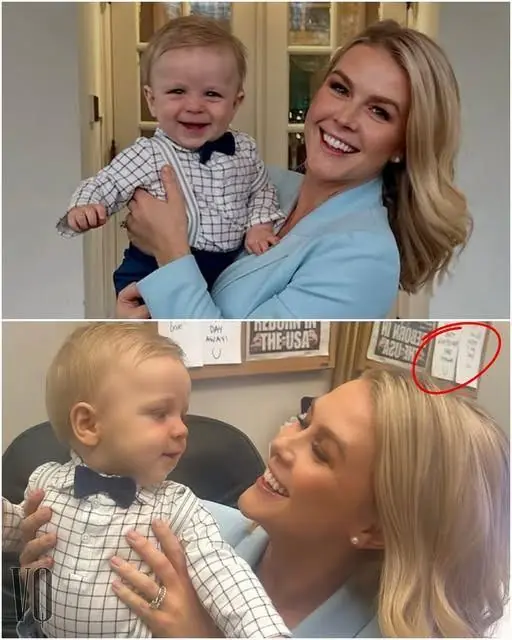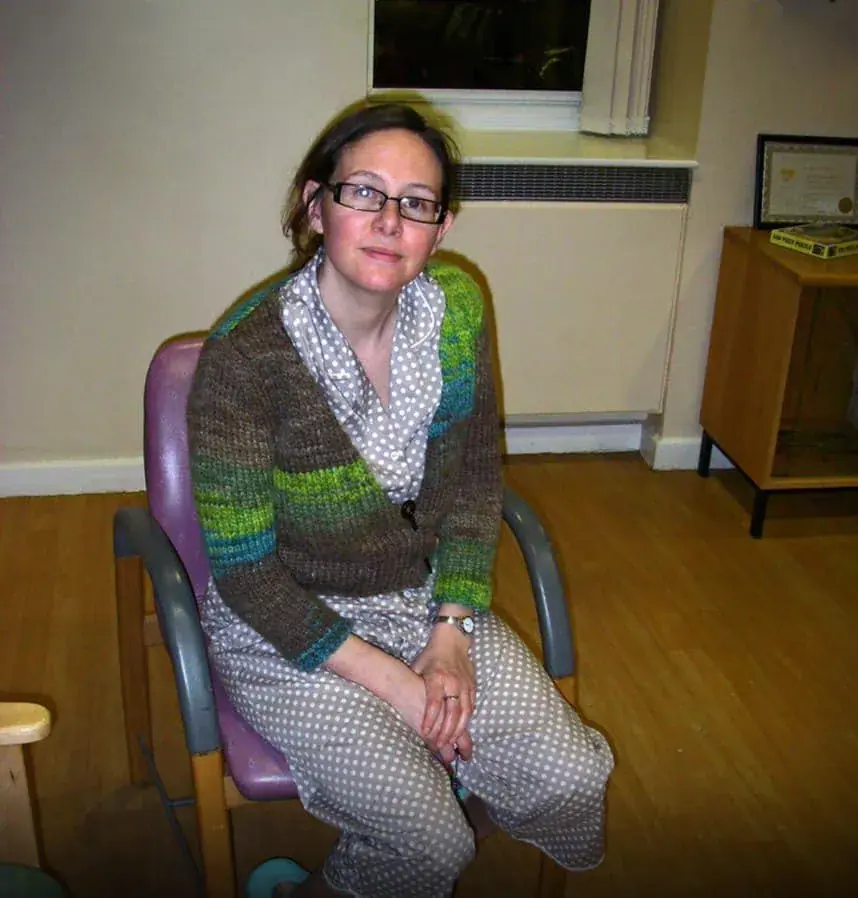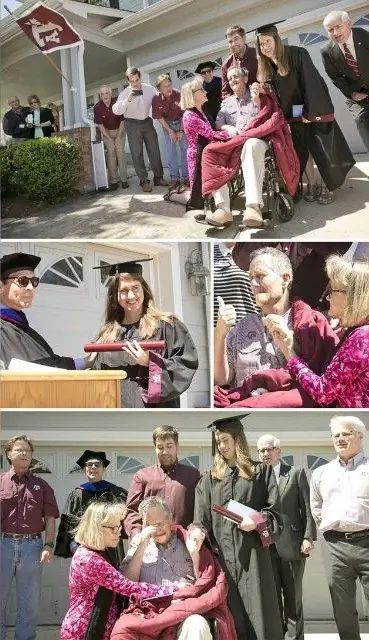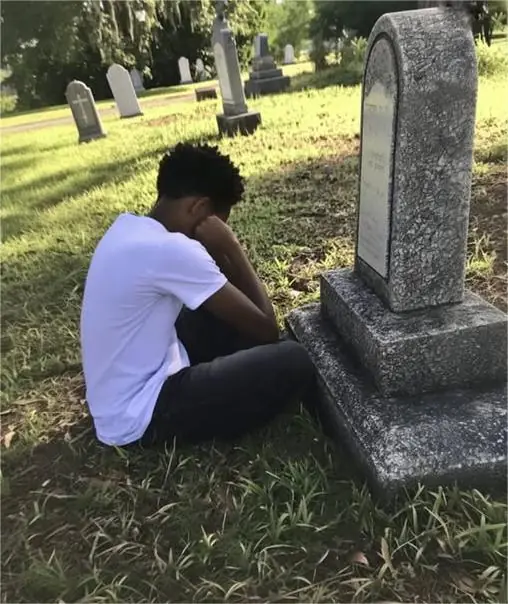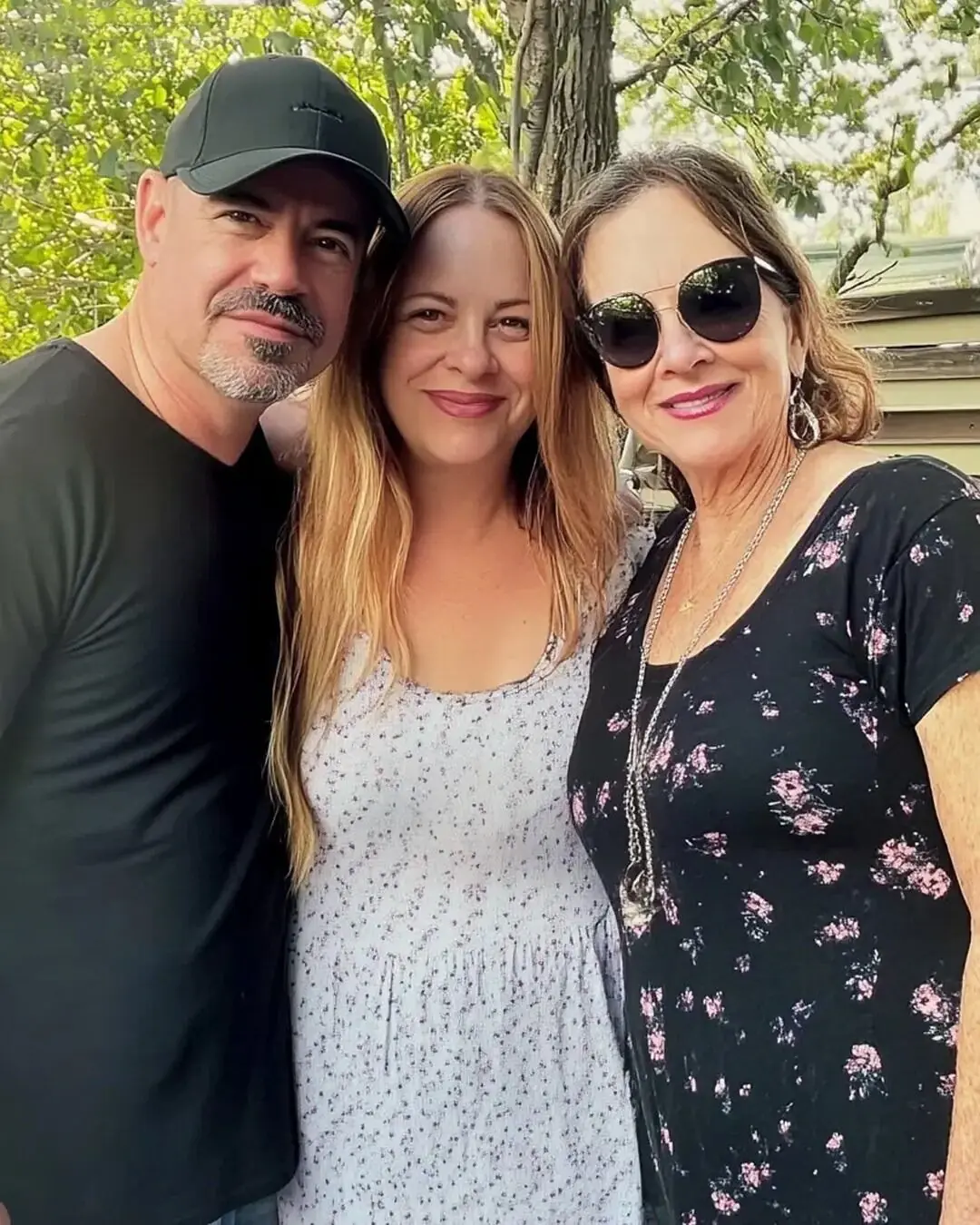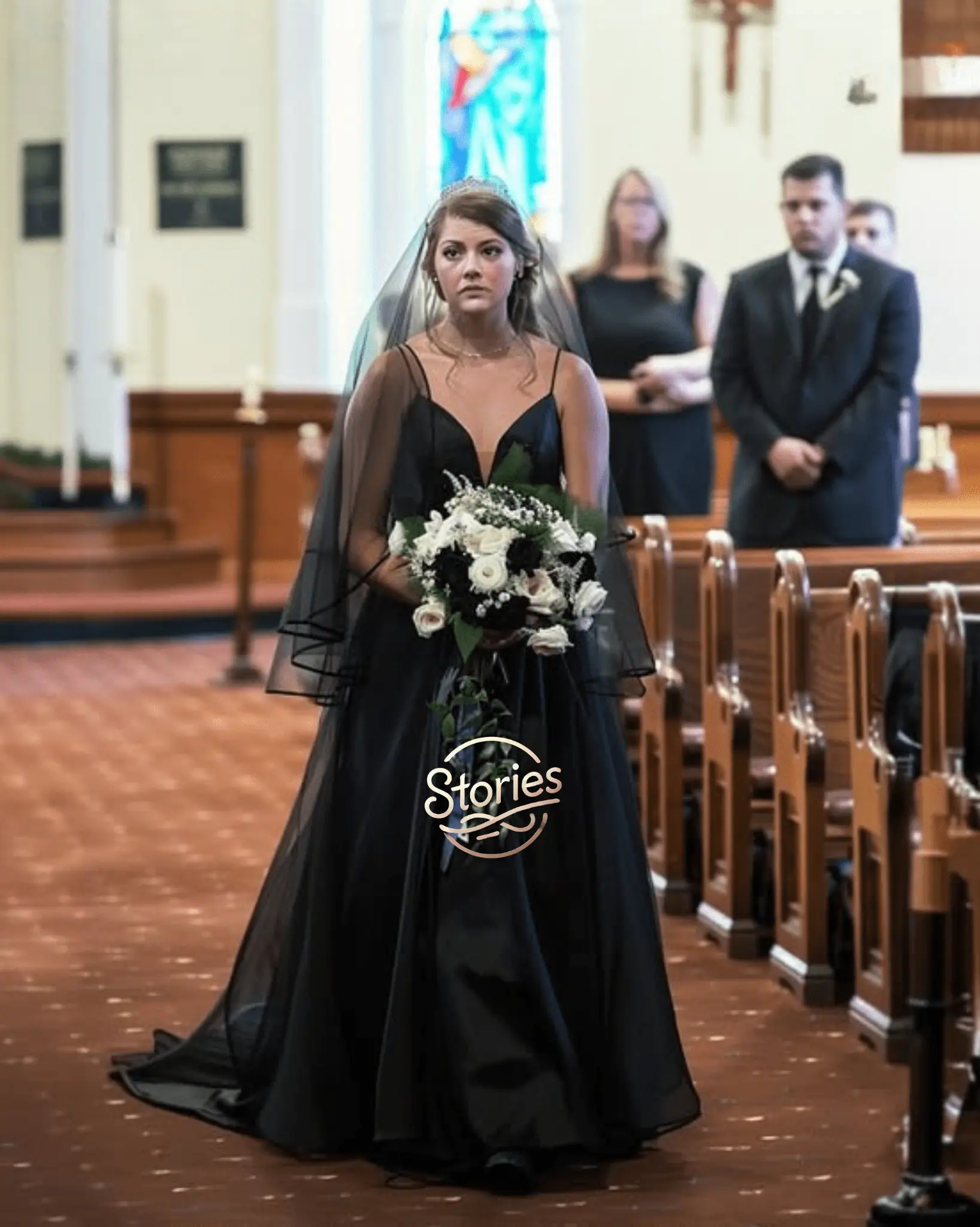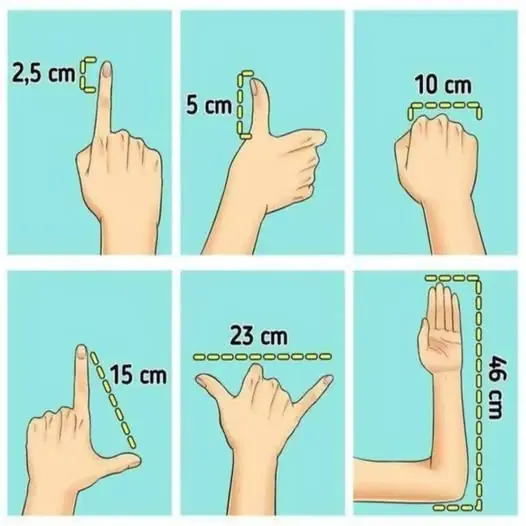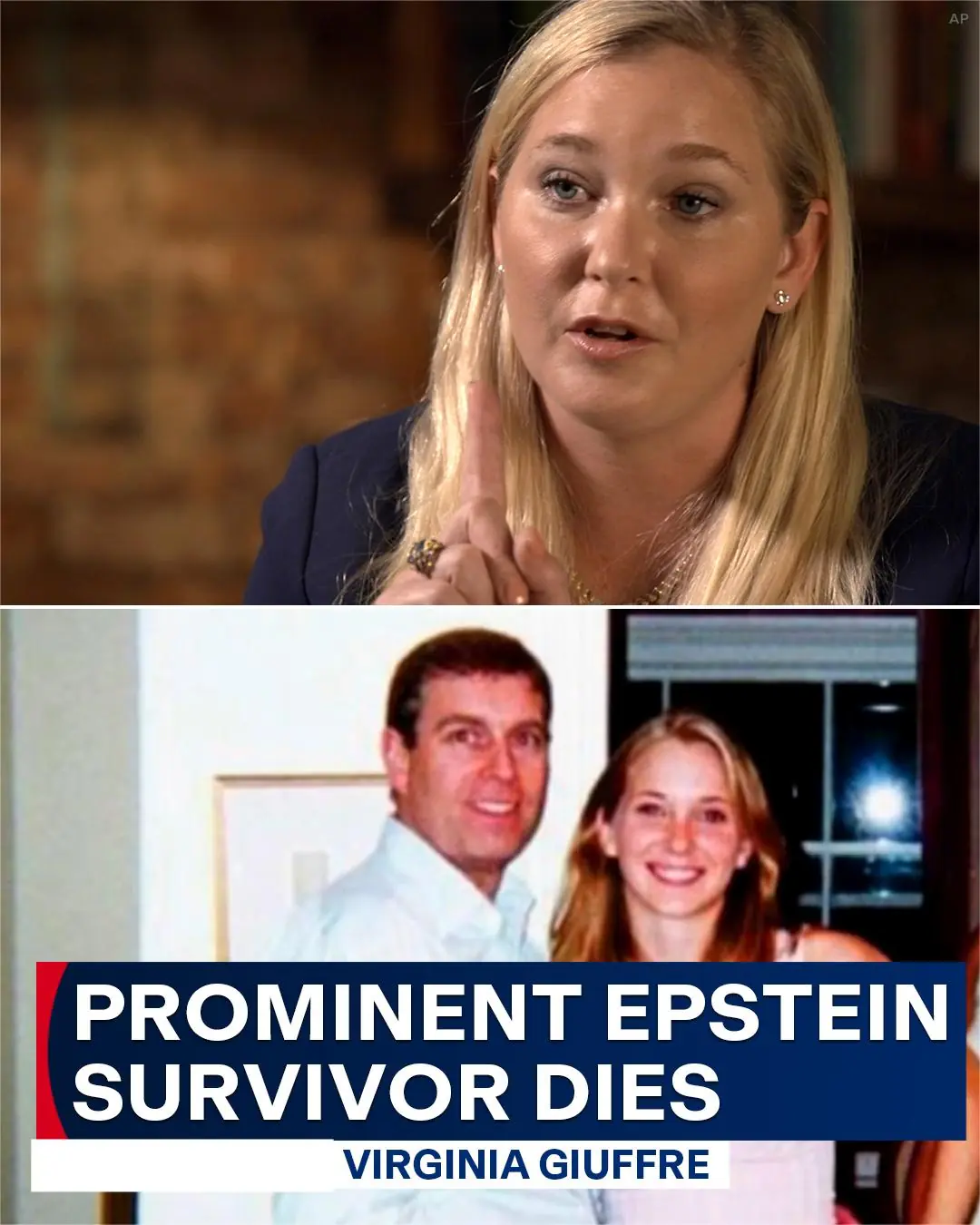A Quiet Light: The Life and Legacy of Eleanor
Chapter 1: The Early Days of Devotion
Eleanor was born in a small town where every sunrise promised a new beginning. From the very start, she had a gentle spirit and a heart full of compassion. Her childhood was simple: days filled with laughter, the scent of fresh bread in her mother’s kitchen, and quiet afternoons spent helping her neighbors. Even as a little girl, she instinctively cared for others. When a friend fell ill, she’d share her favorite doll or offer a comforting smile. In a world where many children dreamed of adventure, Eleanor found joy in the small act of making someone feel cared for.
Her parents taught her that service was a gift—a way of showing gratitude for life’s blessings. Her mother, with her warm, knowing eyes, would say, “Always remember, dear, even a small kindness can brighten a dark day.” These words became the cornerstone of Eleanor’s life. In every task she undertook, whether it was sweeping the porch or tending to a wilted flower in the garden, she poured her heart into it, believing that every act of love was a seed that could grow into something beautiful.
As she grew, so did her reputation. Neighbors spoke softly of the little girl who never hesitated to help, who always wore a smile and whose gentle voice calmed even the weariest soul. It was not long before Eleanor’s dedication blossomed into a lifelong commitment to caring for others.
Chapter 2: Finding a Second Home
In her teenage years, Eleanor discovered a sanctuary in the local church. The modest building, with its timeworn pews and softly echoing hymns, became her second home. It was here that she learned the true meaning of devotion—not merely in words or grand gestures but in the steady, unassuming acts of daily service.
Eleanor began arriving at the church long before anyone else. She would set out early, dusting the pews, arranging the hymnals, and making sure every corner of the sanctuary shone with a humble glow. To her, these tasks were sacred. They were not chores but opportunities to serve and to honor the community that had embraced her from childhood.
Over time, she became known simply as “Gran Eleanor” among the congregation—a nickname given not out of age but out of deep respect. Her warm smile, her quiet demeanor, and her readiness to help anyone in need earned her the admiration of many. Whether it was driving the church van on retreats, preparing extra casseroles for fellowship dinners, or covering for a sick volunteer at the nursery, Eleanor did it all without expecting a word of thanks. Her commitment was measured not by grand accolades but by the quiet, steady love she shared every day.
Chapter 3: The Invisible Foundation
In every community, there are those who work silently in the background, ensuring that the wheels of life turn smoothly. For the church that Eleanor loved, she was that unseen force—the invisible foundation upon which every event was built. Her contributions were so seamlessly woven into the fabric of daily life that no one could ever imagine the church functioning without her.
Every event, from the smallest prayer meeting to the largest community celebration, benefited from her tireless work. She made sure that every chair was in its rightful place, that the refreshments were always enough for every hungry soul, and that even the most minor details were tended to with care. Her service was never performed for applause; it was simply an act of love. She believed that to give was to receive a quiet, unspoken joy—a truth that shone in the eyes of those whose lives she touched.
Yet, in a world where loud voices often claim the spotlight, Eleanor’s gentle deeds went largely unrecognized. Her face was familiar, but her name was rarely mentioned in the same breath as the church’s public figures. In a sense, she had become invisible—a humble servant whose every act was taken for granted because it was so natural, so expected.
Chapter 4: Years of Unwavering Service
For nearly five decades, Eleanor’s life was a testament to selfless service. Each day was a repetition of small miracles: a hot meal shared with a stranger, a kind word offered to a grieving friend, a comforting presence during times of sorrow. Through her actions, she embodied the essence of compassion without ever seeking recognition.
In the bustling days of church life, when schedules were tight and celebrations were grand, Eleanor’s contributions were the soft background music that made everything possible. The church’s success was built on the invisible acts of kindness that she offered every single day. To the community, she was as reliable as the morning sun—always there, steadfast and unwavering, offering her love without reservation.
People came to know her simply as “Eleanor” or “Gran Eleanor,” a personification of quiet generosity. They never asked her what she needed, because she never needed anything in return; she only wanted to give. In every gentle smile, in every carefully prepared meal, and in every moment of unspoken care, Eleanor showed that true service is measured not by accolades but by the quiet satisfaction of a heart that gives freely.
Chapter 5: The Trials of Life
Despite a lifetime of faithful service, life was not always kind to Eleanor. In her later years, fate dealt her a cruel blow. At the age of 73, a severe car accident left her physically weakened. The strong, spirited woman who once tended to her garden at dawn now struggled to climb the front steps with the help of a cane. The accident transformed her vibrant life into one shadowed by pain and physical limitations.
Yet, even as her body began to fail her, Eleanor’s inner spirit remained unbroken. She continued to live with a dignity that inspired everyone around her. In the face of physical decline, she clung tightly to her faith, believing that every trial was an opportunity to demonstrate true strength. Her days, though now filled with struggle and quiet suffering, were still marked by the same resolute commitment to love and service that had defined her entire life.
Chapter 6: The Call for Compassion
Following her accident, Eleanor reached out to the very church that had been her home for so many years. With trembling hands and hopeful heart, she wrote letters, made phone calls, and sent messages asking for the care and companionship that had once been so readily given. She longed for a familiar face, a kind word, a prayer whispered in the quiet moments of loneliness.
But as the weeks passed, a painful truth became apparent: the church she had helped build had forgotten her. Calls went unanswered, letters were returned with no reply, and the once-constant presence of fellow congregants was replaced by a deafening silence. It was as if, when her need arose, those who had once relied on her steadfast care had chosen to turn their backs.
The absence was deliberate—a silent rejection that cut deeper than any physical pain. Eleanor, who had always given without asking for anything in return, was now left to face her hardships alone. The very institution she had dedicated her life to was no longer there for her in her time of need.
Chapter 7: The Silent Betrayal
For Eleanor, this abandonment was a bitter betrayal. Her life had been a mosaic of quiet sacrifices, each piece laid down with love and selflessness. And yet, when she needed the support of the institution she had served so devotedly, she was met only with indifference. The pastors who once extolled her virtues and the congregation that once celebrated her contributions now chose convenience over loyalty.
In the quiet of her later years, Eleanor’s heart ached with the loneliness of unreturned affection. The very people who had once claimed to be her family had, in her moment of greatest need, become strangers. It was a silence that spoke louder than any sermon, a profound reminder that true compassion cannot be faked or forced.
Her friends, who had once gathered around her in times of joy and sorrow, were nowhere to be seen. Even her family could only offer polite words and fleeting visits. The abandonment was not an accident—it was a deliberate choice made by those who had forgotten the true meaning of caring for one another.
Chapter 8: Memories of a Matriarch
For those who had known Eleanor best, however, she remained much more than a dedicated church worker. She was the heart and soul of her family—a matriarch whose quiet strength and gentle guidance had shaped the lives of her grandchildren. One of them, Callie, remembered with vivid clarity the tender moments of childhood spent at Eleanor’s side.
Callie recalled how, at the tender age of seven, she would find comfort in her grandmother’s home. In the soft glow of the evening, when nightmares threatened to steal her peace, Eleanor would appear at her door with slippers in hand and a warm smile that banished fear. In that softly lit room, with the soothing scent of lavender and the hum of an old hymn playing in the background, Eleanor’s presence was a balm to a frightened child’s soul.
These memories, filled with quiet warmth and unconditional love, were the foundation upon which Callie built her own understanding of compassion. As she grew older and faced the challenges of adolescence—a time marked by heartbreak, confusion, and the struggle for identity—Eleanor’s gentle guidance provided a steady beacon of hope. Her quiet words and subtle lessons taught Callie that true strength was not in grand proclamations but in the quiet, unyielding resolve to stand tall against life’s storms.
Chapter 9: Lessons in Humility and Inner Strength
Throughout her long life, Eleanor imparted lessons that were as gentle as they were profound. She never offered empty platitudes or clichéd advice; instead, she shared the simple truths that had guided her own journey. In moments of quiet conversation, often over a cup of tea or a slice of homemade cake, she would speak of the importance of dignity, of maintaining one’s inner light even when the world seemed intent on dimming it.
One cherished memory that Callie held dear was a quiet afternoon on the porch. At the tender age of 16, after experiencing the sting of a first heartbreak, Callie sat silently with her grandmother. Eleanor, with a calm certainty, tapped Callie’s knee and said, “If someone makes you feel small, they are not meant to be near the big, beautiful light inside you.” Those words, spoken with soft yet unwavering conviction, became a shield for Callie—a reminder that her inner worth was untouchable, no matter what the world might say.
In every challenge, every moment of loss or betrayal, Eleanor demonstrated that true power lies in the quiet strength of one’s spirit. Her life was a continuous testament to the idea that even when overlooked and unappreciated, a heart that gives freely is a force that endures beyond measure.
Chapter 10: The Years of Abandonment
As the years passed after her accident, Eleanor’s condition worsened, and the once-vibrant woman was forced to confront a stark new reality. Despite her enduring faith and inner resilience, the physical toll of her injuries became increasingly apparent. Her once steady legs now required the aid of a cane, and even the simplest tasks grew more challenging.
In these difficult times, Eleanor reached out to the church she had helped build, hoping that the community she had nurtured for so long would rally around her. She wrote heartfelt letters, made hopeful phone calls, and even sent messages asking for a visit or a shared prayer. But day after day, her pleas were met with silence. The church, which had once been her family, had turned its back on her.
This silence was not accidental—it was a deliberate choice. The pastors and congregants who had once celebrated her service now saw her as a burden, a relic of a past that no longer fit their modern expectations. In the absence of care from those she had dedicated her life to, Eleanor felt a deep, painful betrayal. The very institution that had thrived on her quiet sacrifice now abandoned her in her hour of need.
Chapter 11: Confronting the Truth
For Callie, witnessing her grandmother’s suffering and the stark neglect by the church was a bitter pill to swallow. Each Sunday, after attending services where the echoes of once-familiar hymns rang hollow, Callie would return to Eleanor’s home with a heavy heart. The question that haunted every visit was simple yet piercing: “Did you see Pastor J. today? Did he call or visit?”
At first, Callie tried to offer comforting lies—fabricated tales of whispered prayers and assurances that all was well. But as time wore on, the truth could no longer be hidden. One quiet afternoon, over slices of tangy lemon cake—the very cake that once symbolized the sweetness of family gatherings—Callie found the courage to speak the truth. “Gran,” she said softly, “they don’t talk about you anymore. I’m sorry.”
The silence that followed was filled with the sorrow of decades of neglect. Eleanor’s face, etched with years of quiet sacrifice, showed no shock—only a deep, resigned understanding. It was as if she had known all along that the very people she had served so faithfully would one day forsake her. In that moment, the profound loneliness of a lifetime of unrecognized love was laid bare.
Chapter 12: The Journey Through Suffering
The years that followed were marked by a slow descent into isolation. Physically broken by her injuries and emotionally scarred by the church’s abandonment, Eleanor’s daily life took on a sorrowful cadence. She spent her days in quiet solitude, listening to sermons online and clinging to the remnants of a life that had given so much but received so little in return.
Despite her pain, Eleanor’s spirit refused to be entirely extinguished. She continued to send birthday cards and batches of freshly baked cupcakes to neighbors, even as she struggled to care for herself. Every act of sending a card, every small batch of cupcakes, was an act of defiance—a declaration that even in her darkest hours, she would continue to give what she could, believing that somewhere, somehow, her love would be recognized.
Her home, once filled with the vibrant energy of community, grew silent. The absence of familiar voices, the lack of a comforting knock on the door, all served as constant reminders that the institution she had helped build had forgotten its own roots. And yet, through it all, Eleanor clung to a quiet resilience—a belief that her true worth was not defined by the empty promises of those who abandoned her.
Chapter 13: A Quiet Invitation
In the midst of her solitude, a single phone call became a cherished memory—a beacon of warmth in an otherwise cold and lonely existence. On a crisp afternoon, as Eleanor spoke to Callie on the phone, she gently invited her granddaughter to come home for an afternoon of shared solace. “Come home, Callie,” she said in a soft, earnest tone. “Let’s listen to our favorite sermons together. Let’s pray and remember the good times—and afterward, we can enjoy some fresh scones with jam. I’ve even been teaching Walter a bit of baking.”
This simple invitation was more than just a call for company. It was a testament to Eleanor’s enduring faith and a quiet defiance against the abandonment she had suffered. In those words lay a message of unwavering self-worth: even when the world turns its back, the love you carry inside remains unshaken. Callie, touched by the sincerity of her grandmother’s voice, felt a renewed sense of purpose. It was as if, in that moment, Eleanor was saying, “Though they have forgotten me, I will never forget who I am.”
Chapter 14: The Final Betrayal
Inevitably, the relentless march of time took its final toll. Eleanor’s health continued to decline, and soon she was admitted to a hospice—a stark, sterile place that stood in sharp contrast to the warm, bustling life she had once known. In the hushed, clinical corridors of the hospice, where the only sounds were the soft beeping of machines and the murmurs of overworked nurses, Eleanor’s fragile body was cared for but her spirit was left to grapple with the weight of solitude.
In her final days, Eleanor made one desperate request: she wished to see Pastor J., the man who had once spoken of her virtues in public ceremonies and extolled her service to the church. Her family, determined to honor this simple wish, did everything they could to arrange the visit. But in a twist that cut to the very core of her sorrow, a substitute pastor arrived instead—a man whose demeanor was clinical, whose polished shoes and rehearsed words betrayed an absence of genuine compassion.
For twelve long minutes, the substitute circled Eleanor like a trader appraising an asset. When he finally spoke, his voice was devoid of empathy. “Have you remembered the church in your will, Eleanor?” he inquired in a tone that left no room for discussion. His words were not of spiritual solace but of cold calculation—a final attempt to extract what little value remained from a life defined by giving.
In that painful moment, as Eleanor’s eyes clouded with both physical pain and the weight of a lifetime of neglect, she whispered, “He didn’t ask me about my soul… he just asked me about my money.” Those words, spoken softly in a sterile room, were the final, heart-wrenching declaration of a life betrayed. In that moment, Eleanor’s true legacy—her worth, measured not in dollars but in the depth of her unspoken love—was laid bare for all to see.
Chapter 15: The Day of Farewell
The day of Eleanor’s funeral arrived on a bright, clear morning—a day that seemed to carry both the warmth of remembrance and the cold clarity of truth. Her family, determined to honor her memory without the pretense of a church that had abandoned her, chose a modest funeral home for the service. The room was simple, with folding chairs arranged neatly, soft music playing in the background, and a handful of sincere hearts gathered to bid farewell.
One of the most poignant aspects of that day was the absence of the church leaders who had once claimed her as their own. Not a single pastor from the congregation was present. Pastor J., the man who had once lauded her contributions, and Pastor M., who had reduced her to a transaction in her final moments, were both missing. Their absence was not an oversight but a deliberate rebuke—a final, silent judgment on an institution that had forsaken its most faithful servant.
Grandfather Walter, a figure of quiet dignity who had shared in Eleanor’s long struggle, took to the podium. Holding Eleanor’s worn leather Bible close to his chest, he spoke with measured resolve. “The church that she gave her life to, that we all believed in, gave her nothing when she needed it most,” he declared. “They abandoned our Eleanor, and in her final moments, they came not to offer comfort but to claim what they could. They saw her only as an asset, nothing more.” His words, filled with quiet fury and unyielding honesty, resonated deeply in the silent room.
Chapter 16: A Testament of Truth
In the weeks following the funeral, the true testament to Eleanor’s life began to emerge—a document that would forever change how her legacy was remembered. In a small, sunlit room in the office of her longtime lawyer, Denise—a gentle soul who had once shared Eleanor’s Bible study group—read aloud the carefully prepared will. The room was charged with an air of solemn purpose, each word a powerful reminder of a life dedicated to love.
Eleanor’s will was a tapestry of heartfelt legacies. To her beloved husband, Walter, she bequeathed not only a share of their home and savings but also a personal letter recounting the early days of their love—the time when they had danced barefoot in their kitchen and found joy in the simplest moments. To her cherished grandchild, Callie, she left a treasured recipe book, her very first Bible, and a delicate bracelet chosen because its stone reminded her of Callie’s bright, hopeful eyes. Every item, every handwritten note, was imbued with Eleanor’s deep belief in the power of kindness and family.
But perhaps the most striking part of the will was a final message directed squarely at the church that had abandoned her. Denise unfolded a second piece of paper, and in a voice trembling with both sorrow and defiant strength, began to read Eleanor’s words:
“To the pastors of the church I once called home:
I loved you. I served the Lord alongside you. I gave you decades of my life without ever asking for recognition or reward. Yet in my final years, when I could no longer provide for you with food or money, I became invisible. I waited for your calls that never came. I invited you in, and you turned away.
You left me alone until it was time to collect what little remained. Then, you came not for my stories, nor my fears, nor my prayers—but for my assets.
I once intended to leave a generous portion of my estate to the church because I believed in its mission and in you. But now, Pastor J., you ignored me; and Pastor M., you reduced me to a transaction.
For your betrayal, you each receive one cent—a token, a final reminder that I was never measured by what I could give you in return.
My final donation has gone instead to Reverend Lila Hayes, who brought me meals, prayed with me, and was truly at the hands and feet of the Lord when you were merely the voice of empty promises.
You broke my heart. But I will not let you profit from my pain.”
As the final words were read, a heavy silence fell over the room. Even the pastors present exchanged uneasy glances. The truth in Eleanor’s testament was undeniable: her legacy was not one of material wealth, but of love, truth, and the quiet power of selfless service.
Chapter 17: Reclaiming the Narrative
In the aftermath of Eleanor’s will, the community began to awaken to the deeper meaning of her life. The money that many expected would fill the church’s coffers was instead redirected to initiatives that truly embodied her spirit. Eleanor’s donation funded the church’s charity pantry for a year, provided legal aid for struggling foster families, and purchased new books for the children’s literacy program. These modest initiatives were a powerful testament to Eleanor’s unwavering belief in the transformative power of compassion.
Her bequests became a corrective force—an opportunity to ensure that her legacy would continue to uplift those who were truly in need, rather than being squandered by an institution that had long forgotten its own mission. For those who had witnessed her life, Eleanor’s actions were a reminder that true faith and genuine service could not be measured by public accolades, but by the quiet, enduring impact on the lives of others.
Chapter 18: The Lessons of a Life Lived Genuinely
Eleanor’s life, with all its silent sacrifices and unyielding strength, left behind lessons that continue to inspire. Her story was one of quiet defiance—a refusal to allow the superficial trappings of institutional piety to obscure the true meaning of service. Even in the face of betrayal, Eleanor stood tall, her dignity intact and her heart resolute.
Her family, led by Grandfather Walter and supported by grandchildren like Callie, took solace in the knowledge that Eleanor’s true legacy would never be tarnished by the hypocrisy of those who had abandoned her. At a later memorial gathering, Walter spoke with quiet conviction, “They don’t get to grieve her in public when they ignored her in private. Today, we honor her for who she truly was—a beacon of love, of selflessness, and of uncompromising truth.”
Chapter 19: A Legacy Carved in Memory
Over time, Eleanor’s story grew beyond a personal family narrative and became a broader lesson on the true meaning of faith, service, and legacy. For many who had felt overlooked by institutions meant to nurture their souls, her life was a powerful reminder that authenticity and kindness cannot be measured by public applause but by the quiet impact on the lives of a few.
Her legacy was a quiet rebellion—a steadfast declaration that true worth is not measured in dollars or accolades, but in the love one gives freely, without expectation. Eleanor’s final act of leaving a single cent to each ungrateful pastor was a piercing condemnation of an institution that had failed to care for its most devoted servant. In doing so, she reclaimed her narrative and ensured that her contributions would continue to shine as a light in the darkness.
Chapter 20: The Enduring Impact on Family
Eleanor’s influence on her family extended far beyond the material gifts of her will. For Callie and her other grandchildren, she was the guiding light—a constant reminder that love and kindness are the true measures of a life’s worth. Countless afternoons spent in Eleanor’s warm kitchen, filled with simple recipes and quiet, comforting conversation, became treasured memories that would sustain them throughout their lives.
Callie recalled how, in the midst of her own heartaches and disappointments, the gentle wisdom of her grandmother had always provided solace. “Even when the world seems to turn away,” Eleanor would say softly, “remember that your worth is not defined by their absence, but by the light that shines within you.” These words, spoken with tender certainty, formed the bedrock of a resilience that would guide Callie through even the darkest days.
Chapter 21: The Quiet Revolution of True Service
In the months following Eleanor’s passing and the reading of her will, the broader community began to question what it truly meant to serve. The traditional image of the church—grand buildings, opulent ceremonies, and public displays of piety—was challenged by the humble reality of one woman’s life of quiet devotion. Eleanor’s legacy ignited a quiet revolution: people began to recognize that the true measure of community was not in outward appearances but in the compassion shown to those in need.
Grassroots efforts sprang up in her name. Community centers organized volunteer programs inspired by her example, and stories of her kindness became rallying cries for those who believed that true service was about showing up when it mattered most. Eleanor’s legacy transcended her immediate family, touching the lives of strangers and sparking a renewed conversation about the values that truly bind a community together.
Chapter 22: Institutional Change and Renewed Purpose
Even within the walls of the church that had once abandoned her, change began to stir. A few conscientious members, moved by the revelations of Eleanor’s will and the quiet truth of her life, started to push for reforms. They questioned the status quo and demanded that no one be left unseen or unheard. Though change was slow and met with resistance from old guard traditions, the seeds of transformation had been sown by a woman who had never asked for anything more than to be recognized for her humanity.
Over time, sermons began to shift their focus—from outward piety to the genuine compassion that Eleanor had embodied. Church leaders started to see that true leadership meant walking alongside those in need, not merely dictating from a pulpit. In this gradual transformation, Eleanor’s legacy not only redefined her own story but also paved the way for a broader reckoning within an institution that had lost its way.
Chapter 23: Personal Reflections and the Journey of Healing
For Callie, grappling with the enormity of her grandmother’s legacy was both a painful and transformative experience. In the long hours that followed the reading of the will, as she sat with her family and revisited old photographs and handwritten recipes, Callie began to understand that the quiet strength of Eleanor’s life was a beacon for anyone who had ever felt overlooked or dismissed.
Every shared memory—the gentle hum of a hymn, the warmth of a shared meal, the soft reassurance of a loving touch—became a source of healing. These memories, preserved in faded letters and the soft glow of family gatherings, formed the foundation upon which Callie rebuilt her sense of purpose. In honoring her grandmother’s life, she resolved to live a life defined by authenticity, compassion, and a deep commitment to seeing the beauty in every quiet act of kindness.
Chapter 24: A Tribute Written in Love
In the years that followed, Callie transformed her grief into a mission. Through blog posts, community talks, and personal memoirs, she began to share the story of Eleanor—a narrative woven from the many threads of love, sacrifice, and quiet defiance that had marked her grandmother’s life. Callie’s writings became a heartfelt tribute to a life that had given so much yet received so little in return.
Every word she wrote was imbued with the lessons learned from Eleanor: that true legacy is not measured by grand achievements or public accolades, but by the quiet moments of connection that affirm our shared humanity. In every story, every personal recollection, Callie honored the memory of her grandmother, ensuring that her quiet light would continue to guide and inspire those who felt forgotten.
Chapter 25: The Enduring Light of a Life Beyond Betrayal
Eleanor’s journey, from a dedicated church worker to a woman betrayed by the institution she had helped to build, is one of deep sorrow and quiet defiance. Yet, through it all, her spirit remained unbroken—a testament to the power of genuine love and selfless service. Her life became a symbol of what it means to live authentically, to give without expectation, and to stand tall in the face of abandonment.
Her legacy was not confined to the pages of a will or the whispered remembrances of those who loved her. Instead, it lived on in the countless lives she had touched, in every small act of kindness that continued to bloom long after her departure. Eleanor’s final act—her carefully crafted testament—served as a clarion call to all who had once forgotten her: a final, unyielding declaration that her worth was measured not in material terms but in the enduring impact of her love.
Chapter 26: A Call for Reflection
As the community gathered to remember Eleanor, her story became a call to action—a challenge to each person to look within and examine the ways in which they served their neighbors. Her life was a quiet reminder that every act of kindness, no matter how small, leaves a mark that transcends time. It urged people to cherish those who work silently in the background, to appreciate the beauty of a humble heart, and to build communities where every gesture of love is celebrated.
In the gentle glow of that day, as soft music filled the modest funeral hall, the absence of the church leaders was a stark contrast to the presence of those who truly remembered Eleanor. Her life, with all its pain and unrecognized sacrifice, shone as a beacon of authenticity—a call to be better, more compassionate, and more committed to the values that truly matter.
Chapter 27: Moving Forward—A New Chapter in Community and Faith
In the wake of Eleanor’s final testament, the church and the community were forced to confront their own shortcomings. The institution that had once taken her for granted was now compelled to reflect on the true meaning of service. Grassroots efforts began to emerge from within the congregation, advocating for reforms that would ensure that no one else would be left unseen or unheard. Volunteer groups were formed, outreach programs were restructured, and a renewed focus on genuine community care took root.
For many, this movement was more than a reaction—it was a quiet revolution. People began to see that true service was not about grand displays or public recognition but about the small, consistent acts of love that brought light into dark places. Eleanor’s legacy, once reduced to a single cent in her will, now ignited a broader conversation about integrity, compassion, and the true purpose of community.
Chapter 28: A Personal Vow to Honor a Legacy
For Callie, the lessons of her grandmother’s life became a personal mandate—a vow to carry forward the torch of genuine compassion. Inspired by the indomitable spirit of a woman who had given everything without expecting anything in return, Callie embarked on a journey of community service. She organized dinners for those in need, spearheaded initiatives to support the forgotten, and became a passionate advocate for authentic, heartfelt care.
In every act of service, in every outreach program she organized, Callie strove to ensure that no one would feel the sting of abandonment that had so marked her grandmother’s final years. Her actions, born out of deep love and a commitment to honor Eleanor’s memory, served as a powerful reminder that every small gesture of kindness has the power to transform lives.
Chapter 29: Epilogue—A Legacy Carved in Truth
Eleanor’s story is not one that can be easily confined to the pages of a memoir. It is a living testament to the power of quiet strength, of selfless service, and of the enduring impact that one individual can have on the lives of many. Her journey—from the early days of quiet dedication, through the pain of betrayal and abandonment, to a final act of uncompromising truth—stands as an unforgettable lesson on the true measure of a life well-lived.
Her legacy is carried forward in the hearts of those who knew her best: her family, her friends, and the countless souls whose lives were touched by her gentle kindness. It is a legacy that reminds us that while institutions may fail and public accolades may fade, the truth of a life lived in love endures forever.
As we move forward, let us carry with us the lessons of Eleanor’s life. Let us strive to see the hidden heroes among us, to recognize that every act of service is a spark that can ignite a quiet revolution of compassion. In a world often dominated by noise and superficiality, her life stands as a beacon—a reminder that true legacy is built not on grand gestures, but on the everyday acts of kindness that change lives.
Her final words—to those who once measured her worth in monetary terms—serve as a lasting declaration of truth. Eleanor did not allow the hypocrisy of others to diminish her worth; instead, she reclaimed her narrative, ensuring that her legacy would shine as a light in even the darkest corners.
Chapter 30: Conclusion—The Enduring Power of a Quiet Life
Eleanor’s journey—from a devoted church worker and loving grandmother to a woman betrayed by the institution she had helped build—remains a timeless reminder of what it means to live authentically. It is a story of heartbreak and resilience, of quiet defiance in the face of abandonment, and of a final act of truth that reclaimed a life too precious to be forgotten.
In honoring Eleanor, we honor every person who has ever given of themselves without expectation, who has labored in silence for the sake of others, and who, despite being overlooked, has left an indelible mark on the world. Her life teaches us that the true measure of service lies not in the recognition it receives, but in the love it imparts—a love that endures long after the voices of the world have faded.
As we move forward, let us commit ourselves to being more present, more compassionate, and more dedicated to the ideals that truly matter. Let us build communities where every act of kindness is celebrated, where every humble heart is seen, and where no one, no matter how quietly they serve, is ever forgotten.
Eleanor’s legacy is a call to be better—to be more honest, more caring, and more resolute in the face of adversity. And in doing so, we ensure that the light of a quiet life, lived with integrity and love, continues to shine brightly for generations to come.
Summarized:
The morning of my 35th birthday began quietly enough, filled with the usual rituals of coffee, well-wishes from a few colleagues, and the soft hum of routine in our modest apartment. I had built a life with Ryan, my husband of several years, in which we dreamed of a future together—a future that balanced his gentle desire to have a son with my determined pursuit of a thriving legal career. For years, I had believed in the promises we made to each other: Ryan had vowed that when our son arrived, he would become the devoted stay-at-home dad so that I could continue to build the career I had worked so hard for. Our life together had seemed perfect until that fateful day when everything began to unravel.
It started during the hectic shift at the restaurant where I worked. I had been struggling to keep up with the demands of my job in the bustling kitchen, my mind still reeling from the public breakup that had left me drowning in heartbreak and humiliation. I clung to my work as a lifeline, a steady source of income and purpose amid the storm of personal pain. But that morning, when I arrived late and my personal troubles spilled over into my professional duties, I sensed something was about to change—something that would force me to confront the painful remnants of my past and the promises that had been shattered.
I could still vividly remember the moment when I saw him. Amid the dinner rush, as I navigated the cramped kitchen with a mix of determination and trepidation, my eyes caught sight of Ryan seated alone in the living room, tears streaming down his face. I had expected him to be by my side, to share in the joy of our newborn’s arrival. Instead, I found him isolated, his eyes red and filled with unshed sorrow. Later that day, while trying to focus on my work and serve customers, I discovered that Ryan was not even present when our son cried; his absence in those crucial moments became an echo of a promise he had once made but was now willing to break.
It wasn’t long before I caught more than just his absence—I began to notice the subtle changes in our home dynamics. When our baby cried at night, I was always the one who would rush to comfort him, even if it meant leaving an important work email unanswered. Ryan, in contrast, seemed to hesitate, his voice barely audible as he mumbled that our son needed me more than him. I tried to brush it off as the natural adjustment of a new father, but the pattern grew increasingly clear with each passing day. His once-enthusiastic declarations about our future together began to fade, replaced by excuses and a growing indifference toward the role he had so proudly promised to fulfill.
I couldn’t shake the feeling that my hard-fought career, the very identity I had built with blood, sweat, and countless sacrifices, was now at risk. The promise that Ryan had made—the promise to be there for our son, to take on the nurturing role so that I could continue to excel as an attorney—had been the foundation on which I had built our lives. Yet now, as I juggled conference calls with diaper changes and struggled to maintain my composure, that promise began to feel like nothing more than empty words.
The final breaking point came one chaotic afternoon when I found myself in the living room, nursing our son while feverishly typing an important email. I was so engrossed in trying to salvage a crucial work deadline that I barely noticed Ryan slipping into the room. He leaned against the doorway, watching me with an intensity that sent a chill down my spine. After a few moments of suffocating silence, he finally spoke. In a tone that struck me with its cold finality, he said, “Honestly, I’ve been thinking… maybe you should quit work and stay home with him full-time.” I laughed in disbelief, thinking he must be joking, but when I looked up, his expression was grave—a smirk playing at the corners of his mouth that betrayed a lack of sincerity.
“Nick, remember the promise you made?” I said, my voice trembling with hurt and anger. “You swore that when our son was born, you’d stay home with him so I wouldn’t have to sacrifice my career. I built my life, my career, on that promise. And now you say you think I should give it all up?”
He simply shrugged, dismissively repeating, “Plans change.” The word “change” reverberated in my ears like a death knell. In that moment, I realized with a searing clarity that he had broken his promise. I had trusted him with my dreams, with my future, and now, he was willing to let everything slip away just to suit his own convenience. My heart pounded, my voice rose, and I declared, “You broke your promise, Nick. I can’t, and I won’t, give up everything I’ve built because of your selfish change of heart.”
The confrontation that followed was quiet but charged with an emotion that neither of us could ignore. I laid out an ultimatum: I would quit my career—if and only if he agreed to file for divorce immediately and assume full responsibility for our son, including paying the child support that would reflect the salary I had earned. I demanded full custody because I refused to raise our son with a man who had no intention of keeping his word. For a long, agonizing moment, he stared at me, disbelief and dawning horror in his eyes, and then, without further words, he packed a small bag and left for his parents’ house. I felt a mix of sorrow and relief; while I mourned the loss of the partnership I had once believed in, I also reclaimed a piece of my identity and my future.
In the days that followed, I found solace in my work. The restaurant, where I also moonlighted as a part-time attorney consultant, became my refuge—a place where my dedication and resilience shone through. My colleagues began to treat me with a newfound respect, and even Michael, my stern boss, commented quietly on the strength I had displayed. Every case I won in the courtroom felt like a personal triumph, a declaration that I was not defined by a broken promise or by a man who had chosen his own path over the promises he made to me.
Yet the wound of his betrayal was deep, and I often found myself reflecting on the pain. Late at night, in the solitude of our home, I would recall the moment I confronted him—his dismissive shrug, the coldness in his eyes—and I would write in my journal, “I refuse to be defined by broken promises. My worth is mine to claim, and every day I rise is a victory against the pain of yesterday.” Those words became my mantra, a constant reminder that my strength was far greater than any betrayal could diminish.
As the months turned into a new chapter in my life, I began to rebuild not only my career but also my sense of self-worth. I immersed myself in my legal work, representing clients with the same fiery passion that had once fueled my own dreams. I took on high-profile cases, mentoring junior attorneys and speaking out about the importance of maintaining one’s identity and dignity. Every victory in the courtroom was a step away from the heartbreak of the past and a leap toward a future that was unequivocally my own.
In the midst of rebuilding, I found that public humiliation had a way of galvanizing support. News of my stand against Nick spread quietly among my peers, and soon, messages of encouragement began to pour in from women who had faced similar betrayals. They thanked me for showing them that they, too, could stand up for themselves. I began sharing my story on my blog, “Rising from the Flames,” where I detailed every painful moment, every act of defiance, and every hard-won victory. My words resonated with many, and in that digital space, I found a community of supporters—women, men, and anyone who believed that true partnership required respect and equality.
One day, on the anniversary of that tumultuous birthday, I stood before a small gathering at a local legal conference. I recounted the day of my 35th birthday—the day when Nick had tried to force me into a corner by presenting me with divorce papers in a public setting, the day when I had calmly returned his papers with my own counter-offer, effectively canceling our engagement. I spoke with raw emotion, explaining that I had chosen not to sacrifice my hard-earned career and the dreams I had fought so hard to build. “I refuse to let a broken promise define my future,” I declared, “and I choose to reclaim my worth with every breath I take.” The room erupted in applause, a chorus of support that affirmed my decision and my strength.
In that moment, as I looked into the eyes of the audience, I realized that the true gift of my rebellion was not revenge, but the rediscovery of my own power. I had turned betrayal into a catalyst for change—a transformation that not only shattered the illusion of a perfect partnership but also set me on a path to reclaiming everything that mattered most. My life, once overshadowed by heartbreak, was now a testament to resilience and self-respect.
In the quiet aftermath of that public stand, I moved forward with a resolve that would define the rest of my days. I used the money from my inheritance to purchase a beautiful home—a sanctuary where I could nurture my dreams, where every room was a reflection of my journey from despair to empowerment. That home became a fortress of independence, a place where I set my own rules and where I could build new traditions free from the shadows of past betrayals.
As I settled into my new home, I made a promise to myself and to my son, Noah, that I would never again allow anyone to treat me as if my worth were negotiable. Every day, as I watched him play in the backyard, his laughter a constant reminder of hope and renewal, I vowed to continue fighting for my dreams. I reinvested in myself—furthering my education, exploring creative hobbies, and even starting a small business that allowed me to channel my passion into something tangible. Each step was a declaration that I was not defined by my past, that every promise broken was merely a stepping stone toward a brighter, self-determined future.
Though the pain of Nick’s betrayal still lingered like a shadow, I learned to let it fuel my ambition rather than crush my spirit. I understood that forgiveness was not about condoning his actions—it was about freeing myself from the constant reminder of his failures. In forgiving him, I liberated my own heart, allowing me to embrace a future that was full of possibility and self-fulfillment.
The transformation extended beyond my personal life. At work, I became a mentor and advocate for others who had faced similar hardships. I organized support groups and workshops, sharing my journey and encouraging my colleagues to never let anyone diminish their dreams. My efforts were met with gratitude and respect, and soon, my story inspired others to take a stand in their own lives. I wrote articles, appeared in local interviews, and even spoke at community events, urging everyone to recognize that their worth was not defined by someone else’s broken promises.
As time passed, I began to see that my painful experiences had sown the seeds of a quiet revolution—a movement of individuals who were determined to reclaim their dignity and build lives based on respect and self-worth. I received countless messages from people who, like me, had been made to feel insignificant by those who had promised them the world and then left them to pick up the pieces. Each message, each heartfelt note of thanks, was a reminder that my journey was not in vain—that by standing up for myself, I had helped others find the strength to do the same.
One crisp autumn evening, as I sat on the balcony of my new home watching the sun set over the city, I reflected on everything that had brought me to this point. The echoes of the past—the public humiliation, the cold dismissals, the shattered promises—had all led to this moment of clarity. I realized that the perfect gift of revenge wasn’t about inflicting pain on those who had wronged me; it was about reclaiming my power and using it to build a future where my dreams could flourish without interference.
That realization was both liberating and humbling. I knew that every challenge I had faced had transformed me, that every bitter memory was a reminder of how far I had come. I had learned that true empowerment comes not from the satisfaction of revenge, but from the unwavering belief in one’s own worth. My life was now a celebration of resilience—a testament to the fact that no matter how deeply one is wounded, the heart can mend and shine with renewed brilliance.
I often recalled the day I confronted Colin in the restaurant, when I finally gathered the courage to speak up and demand the respect I deserved. That moment, though filled with anger and pain, was the catalyst that set me on this transformative journey. It was the day I decided that I would no longer allow anyone to diminish my light, that I would never again let my worth be measured by the cruelty of others.
In the years that followed, as I continued to build my career, nurture my relationship with my son, and stand as a beacon of strength for those who felt voiceless, I realized that the legacy of those broken promises had been rewritten by my own determination. I had reclaimed my life, piece by piece, and in doing so, I had turned betrayal into the ultimate gift—a gift of self-respect, of independence, and of the unyielding belief that I was worth more than anyone’s empty promises.
Now, as I write these words from the comfort of my home—a home that stands as a monument to my journey—I feel a deep sense of pride and gratitude. I remember the pain, the humiliation, and the tears, but I also remember the incredible strength that rose from those hardships. I see in every challenge an opportunity to prove to myself that I am not defined by the actions of others, but by the courage I summon to rise above them.
My journey has taught me that true legacy is not about the material wealth we leave behind, but about the values we instill in our hearts—values of love, respect, and unwavering self-belief. I continue to share my story in the hope that it will inspire others to stand up for themselves, to never compromise their dreams, and to always hold fast to the promise that they are worthy of every good thing in life.
Looking forward, the future is an unwritten page, waiting for me to fill it with the colors of hope, resilience, and unyielding determination. I have transformed my pain into a source of power, and I have built a life that honors every sacrifice I have made. My son, Noah, grows up in an environment where he is cherished and encouraged to dream big—an environment where the echoes of past betrayals are replaced by the music of possibility.
I invite you to take this message to heart: never allow anyone to dictate your worth. Stand tall, speak out, and above all, believe in your own strength. For in the end, the most profound gift you can give yourself is the power to shape your own destiny—a destiny that is defined not by the failures of those who have hurt you, but by the triumph of your own spirit.
This is my legacy—a legacy carved in truth, built on resilience, and destined to shine as a quiet light in a sometimes dark and unkind world. I have learned that while betrayal may scar the heart, it can never extinguish the flame of hope if we choose to nurture it with love and determination. And so, as I close this chapter and look toward a future filled with promise, I know that every broken promise has led me to this moment of rebirth—a moment when I can finally say, with unwavering conviction, that I am enough, and that my future is mine to create.
The journey is far from over, and I know that there will be more challenges ahead. But I face them now with a heart fortified by experience, a spirit emboldened by hardship, and a mind clear in its purpose. I choose to move forward with the quiet strength of someone who has survived the worst and emerged triumphant—a testament to the enduring power of self-respect and the perfect gift of revenge transformed into a new beginning.
Every day, I wake up with the resolve to honor the memory of those who have shaped me and to build a future that reflects the true value of love and dignity. My story is not one of bitterness, but of rebirth—a journey from humiliation to healing, from betrayal to empowerment. And as I continue to share my journey, I hope it inspires others to find their own voice, to stand up for what is right, and to create a life defined by unwavering self-worth.
The price of family, the cost of broken promises, and the sting of betrayal have all been steep, but they have also paved the way for a future that is brighter than I ever dared to imagine. I have reclaimed my power, rewritten my narrative, and in doing so, I have discovered that the ultimate gift of revenge is not the destruction of another—it is the creation of a life where love, respect, and hope reign supreme.
This is my story, the story of how I scorched the past and emerged reborn from the ashes of betrayal. And as I look to the horizon, I see not the ghosts of what once was, but the vibrant promise of tomorrow—a tomorrow where my light shines undimmed by the darkness of those who tried to take it away.
